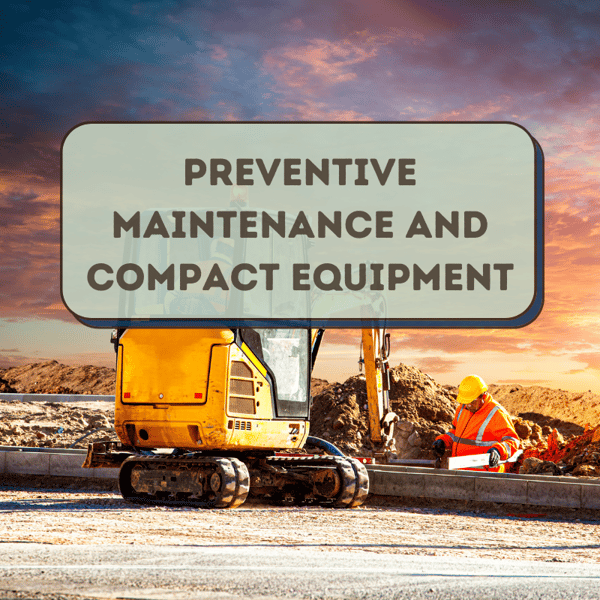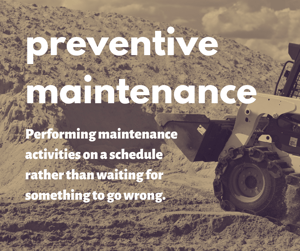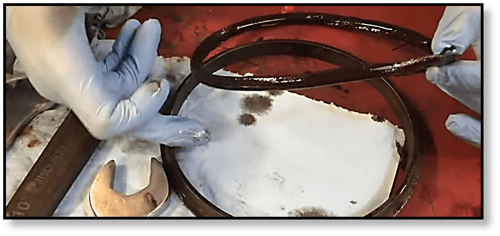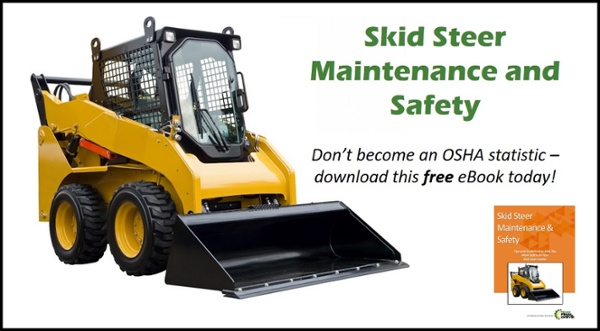What kind of maintenance practices do you follow for your compact equipment? We recommend preventive maintenance, especially when it comes to your final drive motors.

Here are a few other Shop Talk blog posts you might enjoy ...
- Guidelines to Final Drive Maintenance
- Final Drive Maintenance: Gear Oil
- Heavy Equipment, Telematics, and the Internet of Things
What is Preventive Maintenance?
Preventive maintenance means performing maintenance activities on a schedule rather than waiting for something to go wrong. The schedule can be calendar days (e.g., once a month) or operating hours (e.g., 1,000 hours).
And it's a very popular approach to maintenance: a recent report from Finances Online reported that preventive maintenance is the leading maintenance paradigm worldwide.

How Does Preventive Maintenence Work?
As an example, let’s consider gear oil. You should check and change the gear oil levels on your final drive motors about once every 100 operating hours. Preventive maintenance means that you’ll take the time to run this check as close as you can to 100 hours -- and top off the levels if needed, make a note if the levels are consistently running low, and maybe schedule some downtime if you suspect one of the seals might be going out.

If you don’t follow preventive maintenance, then you’re more likely to check the gear oil levels when you hear some strange noises from your drive motors or if you notice a substantial amount of gear oil leaking out. By this time, however, you could have done some serious damage to the planetary gear set.
Depending on the level of damage, you might have some lengthy downtime and lead time for repairs and/or replacement parts. And if you try to push your machine to the end of the project, it may experience a catastrophic failure that will cost even more to address.
Benefits of Preventive Maintenance
There are several different benefits to implementing preventive maintenance for your compact equipment, whether you've got skid steer loaders, compact track loaders, or excavators.
For example, keeping up the maintenance on your compact equipment (including your final drives) will result in fewer breakdowns. And breakdowns are always problematic -- especially when they occur in the middle of a project.
The unplanned downtime that goes along with breakdowns will also be less. This leads to a more productive, reliable machine. More reliable equipment also means fewer repairs and a better return on the investment you made in your compact equipment.

As an added bonus, your operators (and you) will be less frustrated when their skid steer loaders and excavators that work reliably and predictably.
And let’s face it -- when it comes to doing jobs for clients, you are only as reliable as your equipment. When your skid steer loader or excavator breaks down on the job, the main thing your client sees is another delay. And repeated delays will have a bad effect on your reputation and can cost you jobs.
Compact equipment that is well-maintained runs more efficiently (which can reduce fuel costs) and leads to lower M&O costs in the long run. In addition, preventive maintenance will also extend the useful life of your machines.
And here’s something else to consider: with your machine breaking down less, that means more customer satisfaction and a good reputation because your equipment doesn’t break down as much on the job.
Conclusion
Here at Texas Final Drive, we encourage preventive maintenance -- especially when it comes to your final drive motors. Waiting until something goes wrong is dangerous for your equipment and can lead to some unexpected, problematic failures.
Remember that neglecting maintenance is very obvious when someone opens up a final drive motor. And if you neglect to regularly maintain a drive motor you get from us, it can void your warranty. So take good care of your compact equipment and the final drives that move them.


